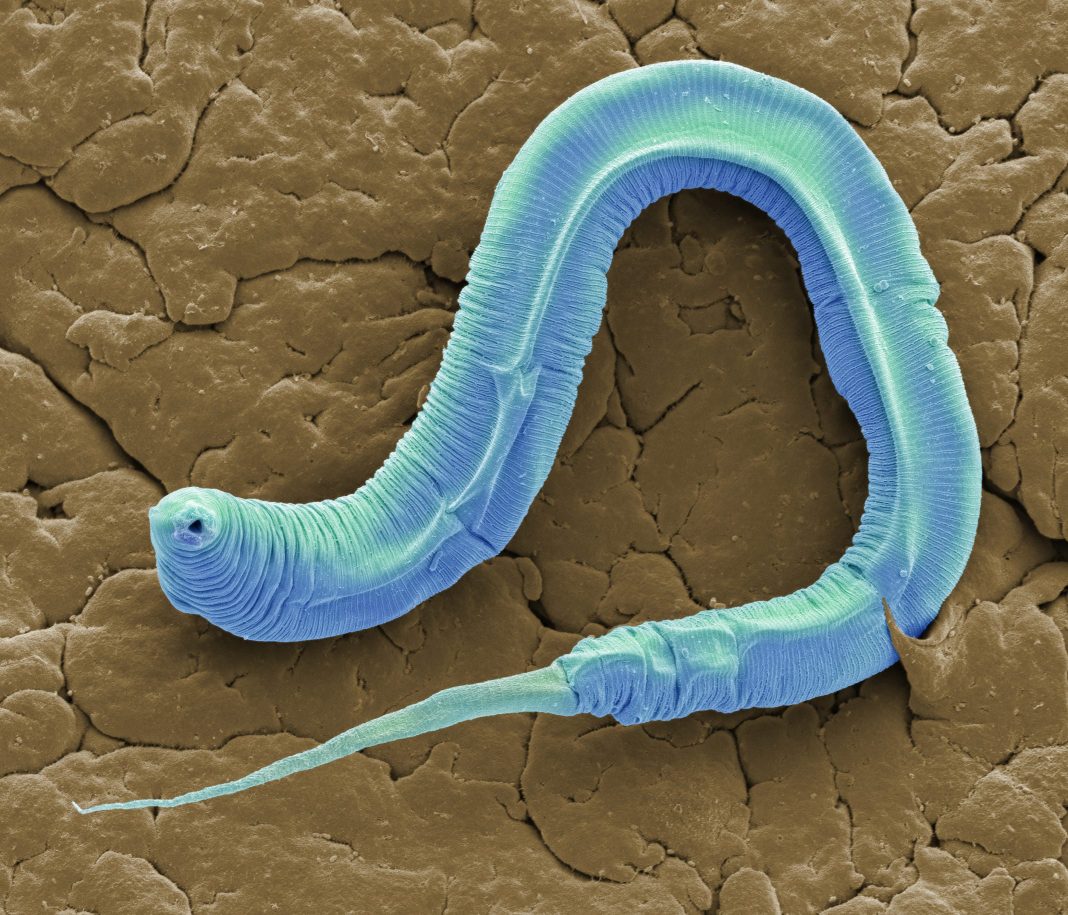Whereas young worms experienced shortening of lifespan in response to cellular stress, similar stress in aged worms extended their survival, reported scientists from the Nanyang Technological University (NTU), Singapore, in a research article in Nature Communications. Although the study was conducted on roundworms (Caenorhabditis elegans), these anatomically simple organisms rely on many of the same genes that humans do to control cell division and death. Therefore, these results could open new avenues of research on therapeutics for age-related disorders in humans.
Senior author of the study, Guillaume Thibault, PhD, a cell biologist and associate professor at NTU said, “Aging is a critical risk factor for a variety of human pathologies, from metabolic diseases such as diabetes to cancer and neurodegenerative diseases. From a public health perspective, determining the cellular pathways that underpin the aging process could take us one step closer to developing novel therapeutic strategies to treat age-related disorders.”
A pivotal metabolic mechanism called the unfolded protein response (UPR) that limits cellular damage in response to stress, is compromised in many metabolic and age-related diseases, leading to the accumulation of unfolded proteins in the endoplasmic reticulum (ER). The current study shows that activating the UPR stress response pathway in cells of aged, post-reproductive worms slows down aging and promotes longevity.
To investigate the effects of UPR activation on longevity, the scientists induced the pathway using high levels of glucose as the stressor. They showed aged worms on a high-glucose diet had longer lifespans compared to worms fed a normal diet.
“While our study found that a high-glucose diet could be useful to slow down aging and promote longevity in aged worms, we are not recommending that the aged population should now turn to a high-sugar diet,” cautioned Thibault. “What this study does show is that triggering certain stress responses in cells may translate to longevity, and that activating this stress response with a drug might be critical to decelerate cellular aging.”
The scientists observed aged worms on a high-glucose diet lived for 24 days—almost twice the lifespan of young worms given the same diet (13 days). Worms on a normal diet lived for 20 days. Besides living longer, the aged worms on a high-glucose diet were more agile and had more energy storage cells, compared to worms given a normal diet, suggesting healthier aging.
A day after placing young and old worms on a high-glucose diet, the scientists monitored the activity of three stress sensors, each responsible for a cellular UPR pathway. They noted that one of the sensors, IRE1, was far more active in young worms compared to aged worms.
When the scientists deleted IRE1 to “switch off” the cellular pathway, they found that young worms fed a high-glucose diet from day one lived for 25 days—twice as long as when the IRE1 gene was intact. This suggests that increased activity of IRE1 in young worms fed a high-glucose diet was responsible for shortening their lifespan.
The authors also showed that UPR stress sensor genes ATF-6 and PEK-1 contributed to the longevity of aged worms.
“We believe that the high-glucose diet fed to the aged worms stimulated their otherwise sluggish unfolded protein response and switched on certain cellular pathways, tackling not just the stress caused by excess glucose but also other aging-related stress, restoring cellular stability,” said Thibault. “In contrast, young worms subjected to a high-glucose diet provoked unresolved stress in the cells due to an overactivated IRE1. This prolonged activation led the cells to initiate cell death instead.”
Therapeutically reducing IRE1 activity while increasing the activity of the other two stress sensors could potentially slow aging and extend lifespans, the findings indicate.
“Metabolic diseases have serious consequences in the elderly if left untreated. This work is impactful because the scientists identified a cellular pathway, called the unfolded protein response, which affects lifespan in animals fed a high-glucose diet. They found that inhibiting this pathway dramatically extended the lifespan of these animals. They, therefore, propose that targeting this pathway may extend lifespan in humans with metabolic disorder,” said Rong Li, PhD, professor and director of the Mechanobiology Institute at NTU, who was not involved in the study.


